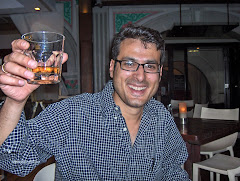Around two years back, while returning home from work late in the night, I noticed a huge jam on the Dwarka flyover. It was pretty late and generally the road used to be deserted at that hour. I parked some distance away from the hold-up and noticed that a bus had rammed into three cars. Nobody was hurt. The police were there and so were the owners of the cars. The bus driver, apparently drunk, had hit the cars. No major damage. All the cars were capable of being driven on.
I asked one of the owners why he couldn’t remove his car, now that the police report had been written. What he told me was symptomatic of the society today. “We have called a news channel. We will not let the bus or cars remover till our quotes have been taken.”
The role of the media – especially broadcast media – has been pivotal in shaping our society today. Everybody and his uncle want their 15 minutes of fame. So what if thousands of other people are inconvenienced?
At a recent talk show on Doordarshan, the panel of editors was asked why journalists tend to air shows or news that titillate? Simple, because the audience wants it, said one. I think that is perfectly logical argument. In this day and age when any body can launch a channel – and most of them are – why would you want to air serious stuff that few are going to watch anyway.
Then another member of the audience asked a channel head why his journalists do not step in when they see somebody trying self-immolation or is any other kind of serious trouble. “We are not social activists,” was the answer.
Perfectly logical answer, again. Only, I would like to add something.
If a reporter out to cover a desperate measure by a citizen intervenes, he would have nothing to show. Which, in effect, means there would be no negative news, no social evils to report. Only a rosy picture. Now that would be something I don’t want to see every time I switch on my TV.
Monday, September 17, 2007
Media and the Indian mindset
Subscribe to:
Post Comments (Atom)




No comments:
Post a Comment